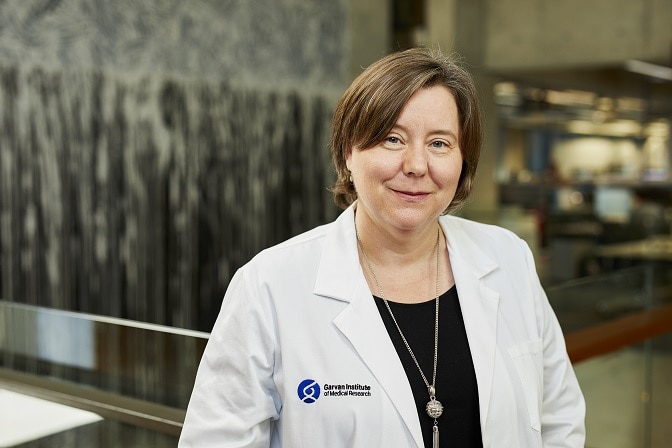
Improving Treatment Options for Rare Breast Cancers
Published: 10/7/19 11:23 PM

Sandra O’Toole
- Project description: Professor Sandra O’Toole will examine a rare breast cancer type called malignant Phyllodes tumours, aiming to better understand these tumours and how to treat them effectively.
- Why this work is needed: Because there is a lower prevalence of rarer breast cancer types, our understanding of these tumour types is more limited. This can lead poorer outcomes for those with rare breast cancers. Professor O’Toole will analyse a unique collection of rare Phyllodes tumours to identify potential treatment options.
- Expected outcomes: Ultimately, the findings of this project will result in new and improved treatments and better outcomes for those diagnosed with difficult-to-treat, rare breast cancers.
Project details
Most breast cancers are carcinomas, which are tumours that start in the surface cells that line the organs and tissues throughout the body. Rarer cancer types include sarcomas and Phyllodes tumours, which grow in the connective tissue between cells. Given their low prevalence (less than three per cent of breast cancer diagnoses), we do not understand as much about these tumour types. Unfortunately, this can lead to poorer outcomes for those that develop a rare breast cancer type.
NBCF-funded researcher Professor Sandra O’Toole will address this problem in a new project that focuses on malignant Phyllodes sarcomas. Her group have collected a unique collection of rare tumour samples and developed valuable experimental models of these rare cancers. Using a combination of genomic technology (to identify gene problems) and cellular imaging (to see the types of immune cells present these tumours will be examined to identify targets that can be used for drug development. The findings will allow Prof O’Toole and her team to identify possible treatments, including the most effective type of immunotherapy, for these rare cancers.
NBCF funding will also allow Prof O’Toole to complete initial efficacy testing of any drug types she identifies, to see if the new treatments can block the growth of the sarcomas. This work has the potential to result in new treatment options and improved outcomes for those with rare breast cancers.